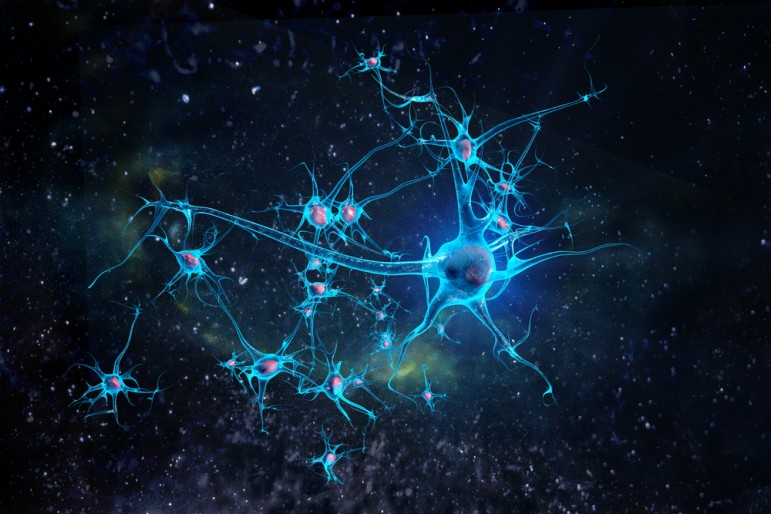The latest and worst craze in the Western mind’s attempt to understand the human mind is neuroscience in the hands of professional philosophers. These dubious twins are mounting a frontal attack on self-knowing, attempting a complete eclipsing of human autonomy and freedom by deeply confused empiricists.
 Alex Rosenberg, co-director of the mind-bending mouthful, “The Center for Social and Philosophical Implications of Neuroscience in the Duke Initiative for Science and Society,” made a maddeningly obtuse attempt at philosophy of mind via neuroscience in a major American newspaper today.
Alex Rosenberg, co-director of the mind-bending mouthful, “The Center for Social and Philosophical Implications of Neuroscience in the Duke Initiative for Science and Society,” made a maddeningly obtuse attempt at philosophy of mind via neuroscience in a major American newspaper today.
In a condescending piece entitled, “Why You Don’t Know Your Own Mind,” Rosenberg dogmatically asserts: “Introspection is not a reliable basis for self-knowledge.”
Of course, he doesn’t say, only implies, what he means by introspection and self-knowledge, and assumes that we all share the same assumptions.
And what, pray tell, is the true basis for self-knowledge? Why, the knowledge neuroscientists are amassing with their experiments and FMRI machines naturally.
When a philosopher in the thrall of neuroscience cites Hume, hold onto your head. Rosenberg’s confusion posing as clarity begins with: “As David Hume said, when we look into ourselves, all we ever see are images, all we ever hear is silent speech-sounds. These sensations (along with emotions) are the only contents of consciousness, the only things introspection can use to figure out what we are thinking.”
The superficiality and lack of self-knowing implicit in this statement is only outdone by the inaccuracy of its unexamined premises. Who is ‘we,’ and what does “trying to figure out” mean?
The unseen assumption, once again, is of a separate observer, presumably without which science, and what poses as philosophy, cannot be done.
Rosenberg gives himself away when he says, “the resources of introspection are exactly the same as the resources our minds work with to explain and predict the actions of others: sensory data provided by sight, hearing, smell, touch.”
Translation? We can’t know ourselves any better than we can know others because all we can possibly see when we look within ourselves is the same mishmash of ‘sense data’ that we use to try to understand others.
Sense data includes, in this ridiculous view, the content of words, images and memories, which we just have more access to within ourselves than in others. In short, there is nothing comprehensible to observe, with or without an observer.
This is the kind of stuff you get when advanced technology, sitting atop unexamined premises and assumptions of science, is mindlessly applied to philosophy. Is there any way out of this labyrinth of the absurd?
Let’s can begin by looking at a core assumption of both science and human relationship.
Implicit in the view Rosenberg proffers is the primacy of a separate entity—for doing science, for self-knowledge, and for doing philosophy. Though he says, “there is no first-person point of view,” his kissing up to neuroscience simply shifts the privileged position from one kind of observer to another, from introspection in the individual to the empirical stance of science.
Question and examine that linchpin—not from some illusory higher perch but simply by holding the right questions—and the entire superstructure of supposed self-knowledge being accumulated by neuroscientists, lacking a philosophical foundation, collapses under its own rickety scaffolding.
In the philosopher of neuroscience’s increasingly dada view, there is no such thing as direct perception. Insight only serves to extend the horizontal field of our knowledge, rather than deepen the vertical dimensions of our understanding.
“We never have direct access to our thoughts…Self-consciousness, is just mind-reading turned inward.” 
So speaketh a latter-day Delphic Oracle who deciphers the obscure and ambiguous findings of neuroscience for us mere mortals.
It’s untrue and profoundly misleading to say “our access to our own thoughts is just as indirect and fallible as our access to the thoughts of other people…we have no privileged access to our own minds.”
It is not the straw man of “thought reflecting on itself that reliably reveals our nature.” It is directly, yes, directly observing the movement of thought/emotion without the fictitious separate observer.
Undivided, undirected attention is what allows the senses, which bring information to the brain in the present, to be, and allows the brain, quieted of the chatter of the so-called ‘sense data’ of words, images and memories, to perceive anew, and awaken a state of insight.
Thought and knowledge can never solve human problems, including the rational, empirical thought and knowledge of science. Thought is the maker of man’s calamity and tragedy. It’s only when there is observing without separation that thought, and the problems and chaos that unattended thought bring, cease.
A silent, reverentially aware quality of mind is our birthright as human beings. With a bit of nature as mirror, one only has to experiment and play with observation within oneself alone to bring it about.
Learning and practicing the art of undivided observation there comes, if only for a few timeless minutes, tremendous peace, as well renewal and growth of the heart, mind and brain.
Martin LeFevre
Link: http://www.nytimes.com/2016/07/18/opinion/why-you-dont-know-your-own-mind.html

